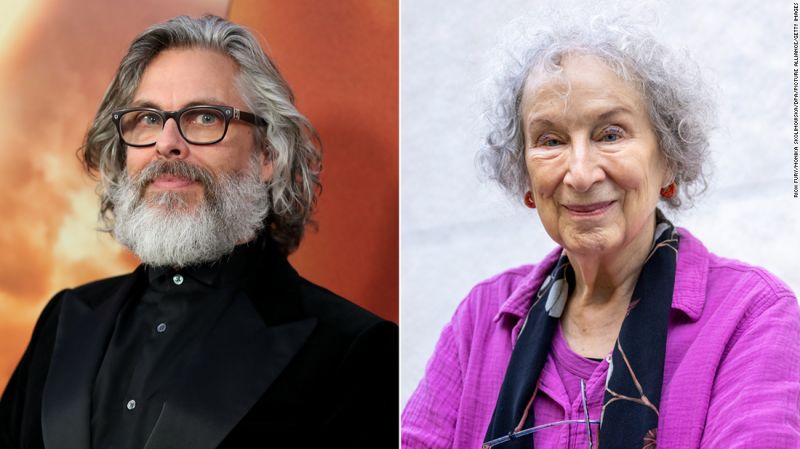- cross-posted to:
- [email protected]
- [email protected]
- cross-posted to:
- [email protected]
- [email protected]
Thousands of authors demand payment from AI companies for use of copyrighted works::Thousands of published authors are requesting payment from tech companies for the use of their copyrighted works in training artificial intelligence tools, marking the latest intellectual property critique to target AI development.



I don’t see how this is even remotely the same? These companies are using this material to create their commercial product. They’re not consuming it personally and developing a random idea later, far removed from the book itself.
I can’t just buy (or pirate) a stack of Blu-rays and then go start my own Netflix, which is akin to what is happening here.
I never said that the idea would be removed from the book. You can literally take the idea from the book itself and make the money. There would be no issues. There is no dues owed to the book’s writer.
This is the whole premise for educational textbooks. You can explain to me how the whole world works in book form… I can go out and take those ideas wholesale from your book and apply them to my business and literally make money SOLELY from information from your book. There’s nothing due back to you as a writer from me nor my business.
You’ve failed to explain how that relates to your point. Sure you can purchase an econonomics textbook and then go become a finance bro, but that’s not what they’re doing here. They’re taking that textbook (that wasn’t paid for) and feeding it into their commercial product. The end product is derived from the author’s work.
To put it a different way, would they still be able to produce ChatGPT if one of the developers simply read that same textbook and then inputted what they learned into the model? My guess is no.
It’d be the same if I went and bought CDs, ripped my favorite tracks, and then put them into a compilation album that I then sold for money. My product can’t exist without having copied the original artists work. ChatGPT just obfuscates that by copying a lot of songs.
A better comparison would probably be sampling. Sampling is fair use in most of the world, though there are mixed judgments. I think most reasonable people would consider the output of ChatGPT to be transformative use, which is considered fair use.
If I created a web app that took samples from songs created by Metallica, Britney Spears, Backstreet Boys, Snoop Dogg, Slayer, Eminem, Mozart, Beethoven, and hundreds of other different musicians, and allowed users to mix all these samples together into new songs, without getting a license to use these samples, the RIAA would sue the pants off of me faster than you could say “unlicensed reproduction.”
It doesn’t matter that the output of my creation is clear-cut fair use. The input of the app–the samples of copyrighted works–is infringing.
The RIAA is indeed a litigious organization, and they tend to use their phalanx of lawyers to extract anyone who does anything creative or new into submission.
But sampling is generally considered fair use.
And if the algorithm you used actually listened to tens of thousands of hours of music, and fed existing patterns into a system that creates new patterns, well, you’d be doing the same thing anyone who goes from listening to music to writing music does. The first song ever written by humans was probably plagiarized from a bird.
Nobody has provided any evidence that this is the case. Until this is proven it should not be assumed. Bandwagoning (and repeating this over and over again without any evidence or proof) against the ML people without evidence is not fair. The whole point of the Justice system is innocent until proven guilty.
Derivative works are 100% protected under copyright law. https://www.legalzoom.com/articles/what-are-derivative-works-under-copyright-law
This is the same premise that allows “fair use” that we all got up and arms about on youtube. Claiming that this doesn’t exist now in this case means that all that stuff we fought for on Youtube needs to be rolled back.
Why not? Why can’t someone grab a book, scan it… chuck it into an OCR and get the same content? There are plenty of ways that snippets of raw content could make it into these repositories WITHOUT asserting legal problems.
No… You could have for all intents and purposes have recorded all your songs from the radio onto a cassette… That would be 100% legal for personal consumption… which would be what the ML authors are doing. ChatGPT and others could have sources information from published sources that are completely legit. No “Author” has provided any evidence otherwise yet to believe that ChatGPT and others have actually broken a law yet. For all we know the authors of these tools have library cards, and fed in screenshots of the digital scans of the book or hand scanned the book. Or didn’t even use the book at all and contextually grabbed a bunch of content from the internet at large.
Since the ML bots are all making derivative works, rather than spitting out original content… they’d be covered by copyright as a derivative work.
This only becomes an actual problem if you can prove that these tools have done BOTH